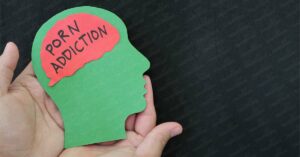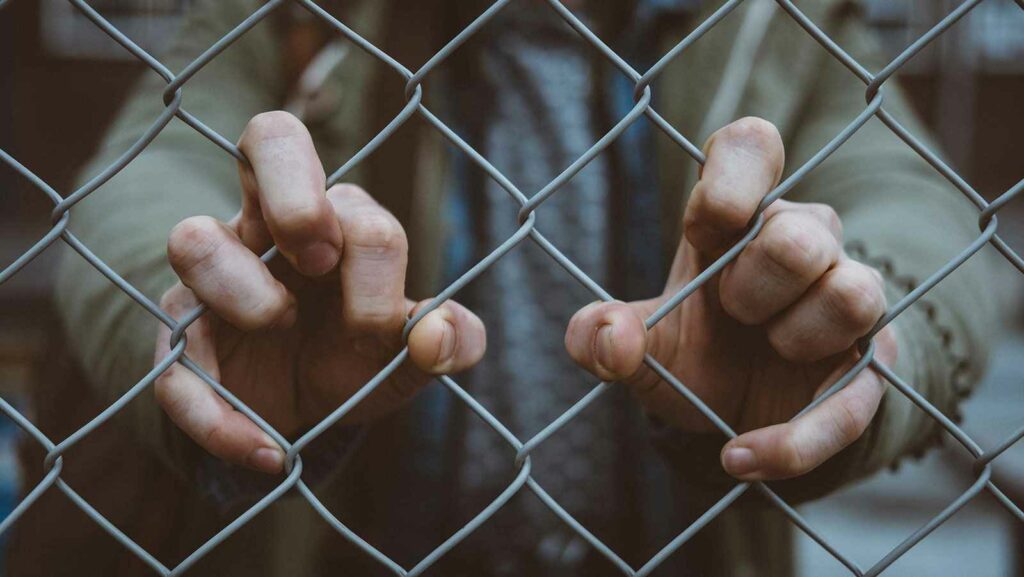In an age where the internet has made all forms of content, including explicit adult content, easily accessible with a single click, a silent epidemic has emerged: porn addiction. Many individuals find themselves trapped in a cycle of compulsive viewing, with repercussions that can affect their mental health, relationships, and self-esteem. Understanding the nuances, causes, and solutions for porn addiction is vital for those looking to regain control over their lives. This blog aims to shed light on this topic, offering porn addiction therapy and techniques used.
Contents
When Is Porn Addiction Therapy Needed?
 Pornography consumption, like many other behaviors, exists on a spectrum. While some people can view it occasionally without it impacting their daily lives, others may find it consuming their thoughts or impeding their ability to function normally. It’s crucial to understand the difference between occasional consumption and a compulsive, detrimental pattern that might signify an addiction.
Pornography consumption, like many other behaviors, exists on a spectrum. While some people can view it occasionally without it impacting their daily lives, others may find it consuming their thoughts or impeding their ability to function normally. It’s crucial to understand the difference between occasional consumption and a compulsive, detrimental pattern that might signify an addiction.
So, when is porn addiction therapy needed? Let’s delve into the signs and consequences that indicate a deeper problem.
1. Loss of Control
If someone repeatedly tries and fails to reduce or quit their consumption of porn despite a genuine desire to do so. Then, it might suggest a lack of control, typical of addictive behaviors.
2. Interference with Daily Responsibilities
When porn consumption starts to interfere with work, school, or other daily tasks because of either the time spent on it or the mental preoccupation with it, it’s a red flag.
3. Strained Relationships
If relationships with partners, family members, or friends suffer because of excessive porn usage, secrecy, or the behaviors associated with it, therapy might be beneficial.
4. Escalating Consumption
Often, like other addictions, tolerance can develop. This means a person might need to view more explicit or extreme material to achieve the same level of arousal or satisfaction as before. This escalation can lead to the consumption of material that one finds morally or ethically problematic.
5. Emotional Distress
Feelings of shame, guilt, anxiety, or depression that arise from porn consumption are indicators that the behavior is not healthy for the individual.
6. Increased Reliance on Sexual Satisfaction
Relying solely on porn for sexual satisfaction, to the extent of preferring it over real-life intimate interactions or being unable to perform without it, is a cause for concern.
7. Negative Impact on Self-Esteem
If an individual’s self-worth or body image suffers because of unrealistic comparisons with actors in pornographic material. Then, it can be detrimental to mental well-being.
Recognizing the signs is the first step. If one or more of these indications resonate, it might be time to consider seeking therapy.
How Does Porn Addiction Therapy Work?
 Porn addiction therapy works by addressing the underlying psychological, emotional, and sometimes physiological factors that contribute to the addiction. Here’s an overview of how porn addiction therapy typically operates:
Porn addiction therapy works by addressing the underlying psychological, emotional, and sometimes physiological factors that contribute to the addiction. Here’s an overview of how porn addiction therapy typically operates:
- Assessment and Diagnosis
Before any treatment plan is made, therapists will usually conduct a thorough assessment. This includes understanding the client’s history, the extent of the porn use, its impact on their life, and any coexisting mental health issues or addictions.
- Individual Counseling
The most common therapeutic method for treating porn addiction is individual counseling. Therapists will often use cognitive-behavioral therapy (CBT) techniques to help individuals recognize and change negative thought patterns and behaviors associated with their addiction.
- Educational Workshops
Understanding the science of addiction, the impact of porn on the brain, and the societal aspects of pornography can be eye-opening for many. These workshops equip individuals with knowledge that can aid in their recovery journey.
- Couples or Family Therapy
If porn addiction is affecting an individual’s relationship or family life, couples or family therapy might be recommended. This type of therapy addresses relational issues and promotes understanding and healing.
- Addressing Co-occurring Issues
Often, porn addiction might not be the only issue. Addressing co-occurring mental health problems like depression, anxiety, or substance abuse is essential for comprehensive treatment.
- Relapse Prevention
Therapy will also focus on strategies to prevent relapses. This includes recognizing early signs of potential relapse, having a plan in place, and building a support system.
- Aftercare and Support
Recovery from addiction is an ongoing process. Aftercare might involve occasional therapy sessions, support groups, or workshops. This will help to ensure the individual remains on the path of recovery.
Porn addiction therapy aims not only to reduce or eliminate problematic behavior but also to heal any underlying issues and improve overall well-being. The approach is holistic, focusing on mental, emotional, relational, and sometimes spiritual aspects of the individual.
What Are The Common Techniques Used?
When addressing porn addiction, multiple therapeutic techniques and interventions are used to facilitate recovery, manage triggers, and prevent relapse. Here are some of the common techniques utilized in treating porn addiction:
Cognitive-behavioral therapy (CBT)
This approach helps individuals identify and change unhealthy thought patterns and behaviors. It’s crucial to address the negative self-talk and irrational beliefs that can fuel addiction.
Mindfulness-Based Therapy
Mindfulness helps in cultivating awareness of the present moment, reducing impulsivity, and managing urges. Techniques like mindful breathing and meditation are used to help individuals recognize and tolerate distressing emotions without acting on them.
Motivational Interviewing
This technique is designed to enhance one’s motivation to change by resolving ambivalence. It helps clients identify their values and goals and how their addiction conflicts with them.
Dialectical Behavior Therapy (DBT)
DBT combines cognitive-behavioral techniques with mindfulness strategies. It’s particularly useful for individuals dealing with emotional regulation issues and helps in developing coping mechanisms to handle stress and urges.
Acceptance and Commitment Therapy (ACT)
ACT focuses on accepting thoughts and feelings rather than fighting against them or feeling guilty for them. It encourages commitment to making behavioral changes that align with one’s values and goals.
Exposure and Response Prevention (ERP)
ERP is a form of CBT where individuals are gradually and systematically exposed to the thoughts, images, and situations that make them anxious and trained not to respond to their addictive behavior.
Support Groups
Peer support can be instrumental in recovery. Groups like Sex Addicts Anonymous provide a safe and confidential environment for individuals to share their experiences and gain insights.
Digital Detox and Blocking Software
Reducing screen time and utilizing software to block access to pornographic sites can assist in managing triggers and reducing exposure to tempting material.
Healthy Lifestyle Interventions
Regular exercise, a balanced diet, sufficient sleep, and stress management play an important role in maintaining mental and emotional equilibrium, crucial for overcoming addiction.
The above techniques are often customized to fit individual needs and circumstances. In fact, they can be combined to form a multifaceted approach. Recovery is a gradual process, and implementing these techniques requires patience, effort, and commitment.
How To Find Porn Addiction Therapy Near Me?
 Finding appropriate porn addiction therapy can be an important step toward recovery. Here are some steps and resources to help you locate therapy services near you:
Finding appropriate porn addiction therapy can be an important step toward recovery. Here are some steps and resources to help you locate therapy services near you:
- Search Engines: Begin with a simple online search using terms such as “porn addiction therapist near me” or “sex addiction therapy [your city/town]”. This can yield a list of practitioners or clinics in your vicinity.
- Therapist Directories and Online Platforms: Websites such as TherapyMantra, CoupleMantra, and Talkspace allow you to search for therapists based on specialization, location, and other criteria.
- National and International Organizations: The International Institute for Trauma and Addiction Professionals (IITAP) and the Society for the Advancement of Sexual Health (SASH) have directories of certified professionals.
- Local Hospitals and Mental Health Clinics: Many hospitals have outpatient psychiatric services that might offer addiction therapies or can provide recommendations.
- Ask for Personal Recommendations: If you feel comfortable, you might ask friends, family, or acquaintances if they have any recommendations. Sometimes personal referrals can be the most effective.
- Employee Assistance Programs (EAPs): Check if your employer offers an EAP. These programs often provide free, confidential assessments, short-term counseling, referrals, and follow-up services for employees.
- Insurance Providers: If you have health insurance, your provider might have a list of in-network therapists who specialize in addiction.
- Online Support Groups and Forums: These can be great places to ask for recommendations. But always ensure that you do your own due diligence when considering any therapist or service suggested.
Remember that finding the right therapist might take some time. It’s essential to find someone you feel comfortable with and who has the necessary expertise to assist you.
Conclusion
Navigating the complexities of porn addiction requires a comprehensive understanding of its signs, underlying factors, and the therapeutic interventions available. Recognizing the issue is the first courageous step. After that, the true healing begins when one seeks professional guidance. So, from cognitive-behavioral techniques to supportive group sessions, a myriad of therapeutic avenues await those willing to seek recovery.
Henceforth, with dedication, the right resources, and a supportive environment, reclaiming control over one’s life and nurturing healthier relationships becomes a reality. However, if you are experiencing addiction-related problems, Online Therapy at TherapyMantra can help: Book a trial Online therapy session


